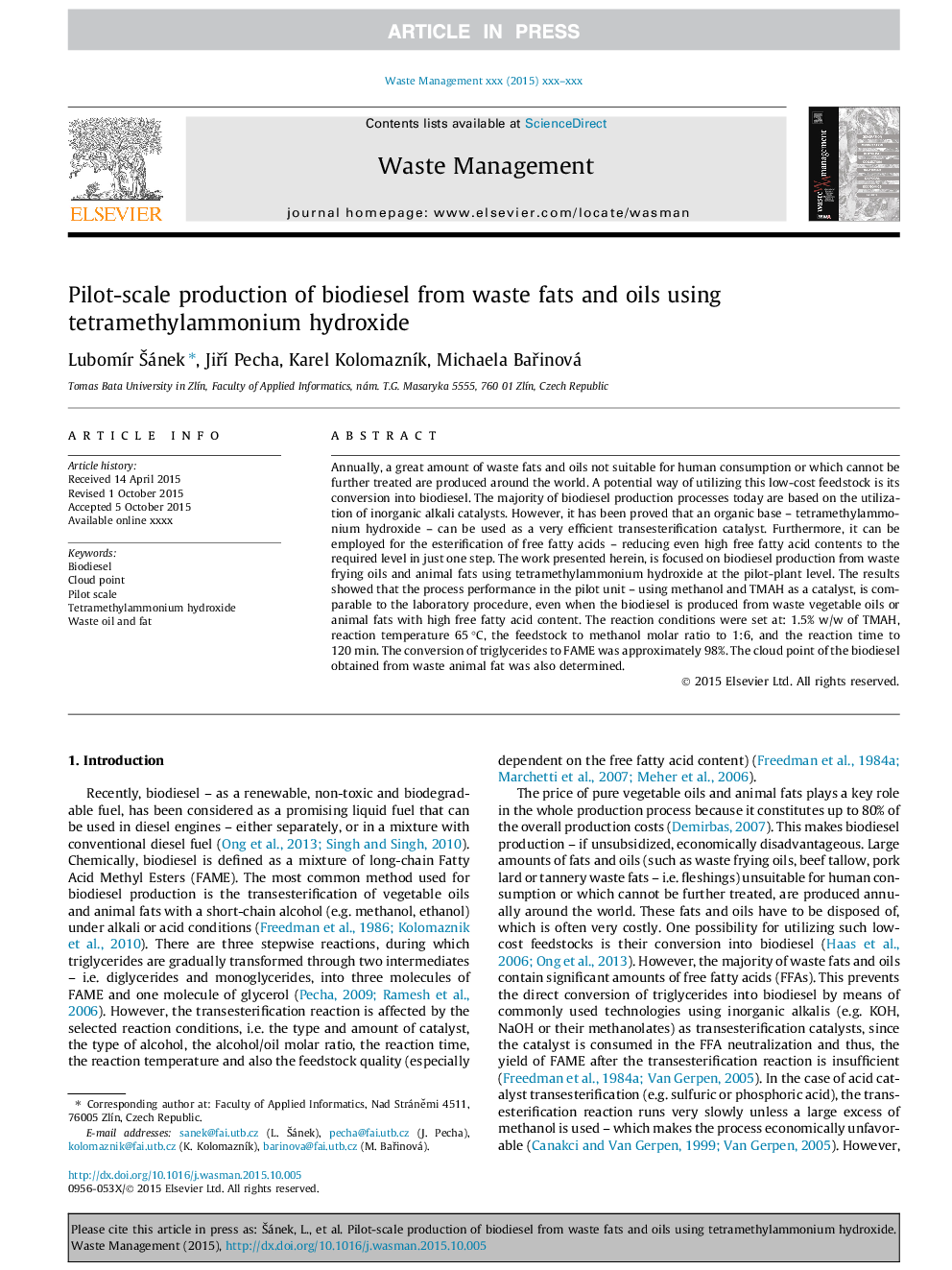| Article ID | Journal | Published Year | Pages | File Type |
|---|---|---|---|---|
| 6354237 | Waste Management | 2016 | 8 Pages |
Abstract
Annually, a great amount of waste fats and oils not suitable for human consumption or which cannot be further treated are produced around the world. A potential way of utilizing this low-cost feedstock is its conversion into biodiesel. The majority of biodiesel production processes today are based on the utilization of inorganic alkali catalysts. However, it has been proved that an organic base - tetramethylammonium hydroxide - can be used as a very efficient transesterification catalyst. Furthermore, it can be employed for the esterification of free fatty acids - reducing even high free fatty acid contents to the required level in just one step. The work presented herein, is focused on biodiesel production from waste frying oils and animal fats using tetramethylammonium hydroxide at the pilot-plant level. The results showed that the process performance in the pilot unit - using methanol and TMAH as a catalyst, is comparable to the laboratory procedure, even when the biodiesel is produced from waste vegetable oils or animal fats with high free fatty acid content. The reaction conditions were set at: 1.5% w/w of TMAH, reaction temperature 65 °C, the feedstock to methanol molar ratio to 1:6, and the reaction time to 120 min. The conversion of triglycerides to FAME was approximately 98%. The cloud point of the biodiesel obtained from waste animal fat was also determined.
Related Topics
Physical Sciences and Engineering
Earth and Planetary Sciences
Geotechnical Engineering and Engineering Geology
Authors
LubomÃr Å ánek, JiÅÃ Pecha, Karel KolomaznÃk, Michaela BaÅinová,
